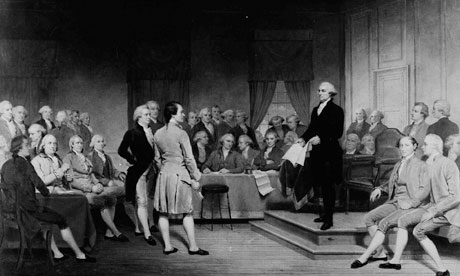Africa rising
A hopeful continent
African lives have already greatly improved over the past decade, says Oliver August. The next ten years will be even better

Sitting on the outskirts of Dakar, Senegal’s capital, the three students sip cappuccinos and look out over a paved road shaded by palm trees where restaurants with white tablecloths serve green-spotted crabs. A local artist is hawking framed pictures of semi-clad peasant girls under a string of coloured lights. This is where slave ships used to depart for the New World. “Way over there, do they know how much has changed?” asks one of the students, pointing beyond the oil tankers on the distant horizon.
This special report will paint a picture at odds with Western images of Africa. War, famine and dictators have become rarer. People still struggle to make ends meet, just as they do in China and India. They don’t always have enough to eat, they may lack education, they despair at daily injustices and some want to emigrate. But most Africans no longer fear a violent or premature end and can hope to see their children do well. That applies across much of the continent, including the sub-Saharan part, the main focus of this report.
African statistics are often unreliable, but broadly the numbers suggest that human development in sub-Saharan Africa has made huge leaps. Secondary-school enrolment grew by 48% between 2000 and 2008 after many states expanded their education programmes and scrapped school fees. Over the past decade malaria deaths in some of the worst-affected countries have declined by 30% and HIV infections by up to 74%. Life expectancy across Africa has increased by about 10% and child mortality rates in most countries have been falling steeply.
A booming economy has made a big difference. Over the past ten years real income per person has increased by more than 30%, whereas in the previous 20 years it shrank by nearly 10%. Africa is the world’s fastest-growing continent just now. Over the next decade its GDP is expected to rise by an average of 6% a year, not least thanks to foreign direct investment. FDI has gone from $15 billion in 2002 to $37 billion in 2006 and $46 billion in 2012 (see chart).

Africa is too big to follow one script, so its countries are taking different routes to becoming better places. In Senegal the key is a vibrant democracy. From the humid beaches of Cap-Vert to the flyblown desert interior, politicians conduct election campaigns that Western voters would recognise. They make extravagant promises, some of which they will even keep. Crucially, they respect democratic institutions. When President Abdoulaye Wade last year tried to stand for a third term, in breach of term limits, he was ridiculed. A popular cartoon showed him in a bar ordering a third cup of coffee and removing a sign saying, “Everyone just two cups”. More than two dozen opposition candidates formed a united front and inflicted a stinging defeat on him, which he swiftly accepted. Dakar celebrated wildly, then went back to work the next day.
Africa
- Democracies
- GDP and population
The journey covered some 15,800 miles (25,400km) on rivers, railways and roads, almost all of them paved and open for business. Not once was your correspondent asked for a bribe along the way, though a few drivers may have given small gratuities to policemen. The trip took 112 days, and on all but nine of them e-mail by smartphone was available. It was rarely dangerous or difficult. Borders were easily crossed and visas could be had for a few dollars on the spot or within a day in the nearest capital. By contrast, in 2001, when Paul Theroux researched his epic travel book, “Dark Star Safari: Overland from Cairo to Cape Town”, he was shot at, forced into detours and subjected to endless discomforts.
Another decade from now a traveller may well see an end to hunger in some African countries, steeply rising agricultural production in others, the start of industrial manufacturing for export, the emergence of a broad retail sector, more integrated transport networks, fairer elections, more effective governments, widespread access to technology even among many of the poor and ever-rising commodity incomes. Not everywhere. This report covers plenty of places where progress falls short. But their number is shrinking.
Wait for it
The biggest reason to be hopeful is that it takes time for results
from past investment to come through, and many such benefits have yet to
materialise. Billions have already been put into roads and schools over
the past decade; the tech revolution has only just reached the more
remote corners of the continent; plenty of new oilfields and gold mines
have been tapped but are not yet producing revenues. The aid pipeline
too is fairly full. The Bill and Melinda Gates Foundation alone has
invested $1.7 billion in Africa since 2006 but acknowledges that “it
takes years and years to shift the system.” Some aid will be wasted,
some new roads will remain empty and more than a few barrels of oil will
be stolen. Yet whereas currently not even half of Africa’s countries
are what the World Bank calls “middle income” (defined as at least
$1,000 per person a year), by 2025 the bank expects most African
countries to have reached that stage.As the hand-painted number 3 bus pulls out of Cap-Vert and travels through the streets of Dakar, the views, bathed in buttery late-afternoon sunlight, reflect aspects of Africa’s current triumphs and tribulations. On the left are new tenement buildings with running water for the urban poor. On a hill to the right stands a 160-foot (49-metre) bronze statue of a man with a muscular torso resembling Mr Wade in his younger years on which he spent $27m of public money. The bus leaves the capital behind and chugs on, passing craggy cliffs and flooded pastures, single-room huts and mangrove forests. Several hours later it crosses a muddy creek near the city of Ziguinchor, heading south towards Guinea-Bissau.
- Source: The Economist
-
 *GDP change, 2010-12Sources: IMF; World Bank
*GDP change, 2010-12Sources: IMF; World Bank
Ways to salvation
Where democracy has struggled to establish itself, African countries have taken three other paths to improving their citizens’ lives. First, many have stopped fighting. War and civil strife have declined dramatically. Local conflicts occasionally flare up, but in the past decade Africa’s wars have become a lot less deadly. Perennial hotspots such as Angola, Chad, Eritrea, Liberia and Sierra Leone are quiet, leaving millions better off, and even Congo, Somalia and Sudan are much less violent than they used to be. Parts of Mali were seized by Islamists last year, then liberated by French troops in January, though unrest continues. The number of coups, which averaged 20 per decade in 1960-90, has fallen to an average of ten.
Second, more private citizens are engaging with politics, some in civil-society groups, others in aid efforts or as protesters. The beginnings of the Arab spring in north Africa two years ago inspired the rest of the continent. In Angola youth activists invoke the events farther north. In Senegal a group of rap artists formed the nucleus of the coalition that ousted Mr Wade.
Third, Africa’s retreat from socialist economic models has generally made everyone better off. Some countries, such as Ethiopia and Rwanda, still put the state in the lead. Meles Zenawi, Ethiopia’s prime minister from 1995 until his death last year, achieved impressive gains by taking development into his own (occasionally bloodstained) hands. Others, such as Kenya and Nigeria, have empowered private business by removing red tape. Yet others are benefiting from a commodities boom, driven by increased demand from China, which has become Africa’s biggest trading partner. Over the past decade African trade with China has risen from $11 billion to $166 billion. Copper-rich Zambia and oil-soaked Ghana are using full coffers to pay for new schools and hospitals, even if some of the money is stolen along the way.
Inevitably, Africa’s rise is being hyped. Boosters proclaim an “African century” and talk of “the China of tomorrow” or “a new India”. Sceptics retort that Africa has seen false dawns before. They fear that foreign investors will exploit locals and that the continent will be “not lifted but looted”. They also worry that many officials are corrupt, and that those who are straight often lack expertise, putting them at a disadvantage in negotiations with investors.







